AMIREDIS: Witnesses to the Root Causes of Migration
BY GUEST BLOGGER | July 7, 2015
written by: Lucas Allen, Intern, Jesuit Conference of Canada and the United States, National Advocacy Office
“How can they ignore us? They can’t! We are their people and they are neglecting us. They are not providing us with any of the things we need to survive.”
With a wall of reporters in front of him and the White House behind, José Luis Hernandez tears up as he speaks of life in his home country of Honduras. He and seven friends who accompanied him on the perilous journey to D.C. stand together, bearing witness to the suffering of their country and the thousands like them who flee for a better life.
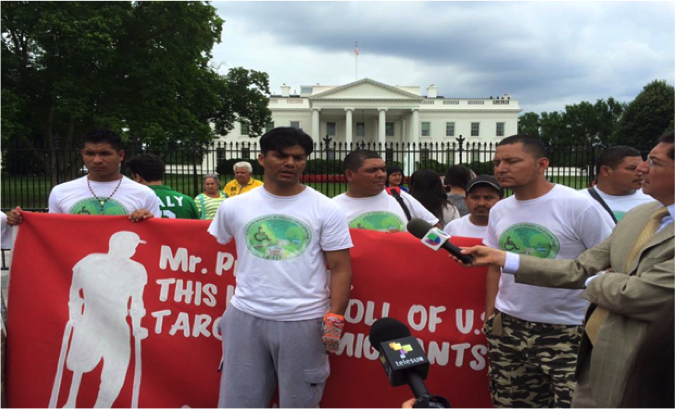
With a wall of reporters in front of him and the White House behind, José Luis Hernandez tears up as he speaks of life in his home country of Honduras.
José, 29, is the president of AMIREDIS (Asociación de Migrantes Retornados con Discapacidad or Association of Migrants Returned with Disabilities), a group of attempted Honduran migrants who were seriously injured en route to the U.S. and forced to return home. Many migrants traveling through Mexico in the past resorted to riding through Mexico on a network of trains known as La Bestia (The Beast). After twenty days of travelling on these trains, José fell off and lost his right leg, his right arm, and much of his left hand.
Back in Honduras with his disability leaving him even fewer opportunities than before, José joined other “Survivors of the Beast” in AMIREDIS. The organization met weekly and received early support from the Jesuit-run radio station Radio Progreso. When their requests for government recognition, medicine, and job training were rejected, they decided to do something that could prevent others from sharing their fate. On February 25, they set out from Honduras in hopes of telling President Obama of the horrors they experienced in Honduras and Mexico.
The second journey north was no easier than the first. Like many migrants this year, José and his companions faced far tougher immigration enforcement throughout Mexico than they had previously experienced. According to WOLA, the number of Northern Triangle migrants apprehended in Mexico has nearly doubled in the past year due to increased security funding from the United States.
After turning themselves in when they finally reached the U.S. border, the men were detained for six weeks in a Texas facility that lacked services or special care for people with disabilities. Although three were deported, eight received help from lawyers and have been released on bond while their immigration cases are pending. They arrived for the press conference outside the White House on June 17, 2015. The event was the culmination of four months and thousands of miles of physical and emotional struggle.
What made these men decide to retake a grueling journey that had brought them so much pain, and caused them to lose limbs? The journey from the Northern Triangle to the United States is one of the most dangerous migrant passages in the world, but the men unanimously agreed that none of the horrors they witnessed on the journey exceeded the horror of everyday life in Honduras. Living in the so-called murder capital of the world is even more frightening than La Bestia, giving them nothing to lose by seeking safety over borders.
“Help your people. That is all we are asking of our government… We are all human beings!”
“Help your people. That is all we are asking of our government… We are all human beings!” José spoke passionately of gang violence that makes people afraid to leave their homes, police that instill more fear than security, and corruption that siphons money away from medical care and welfare. These are just a few of the conditions that have eliminated opportunities for Hondurans and that caused them to risk life and limb for a chance at enjoying basic human rights. José hopes to send the message that global migration policies must respect human dignity by addressing the root causes that motivate thousands of Central Americans to flee each month, rather than building walls to keep them in place.
The stories of these courageous men have immense potential to reframe the immigration debate in the U.S., which often fails to account for the human rights situation in the home countries of migrants. Rather than promoting stability and peace in Honduras, the U.S. has historically used the small country as a military base for Cold War proxy wars, protected American companies that exploit the mineral wealth of the country, and provided military aid to Honduran security forces notorious for human rights violations.
But AMIREDIS has come to seek solutions, not to blame or shame. They have turned disability into ability, using their stories of pain and loss to advocate for solutions. Similarly, the U.S. has the opportunity to overcome injuries of the past and work with the Honduran government and civil society for a future of justice and peace. At the press conference, AMIREDIS asked that the U.S. government work with Mexican and Northern Triangle authorities to end policies that target and criminalize migrants and refugees. Chief among these harmful policies is the U.S. led interdiction efforts in Mexico, which prevent people from accessing territory where they could successfully make a case for asylum and pushes vulnerable migrants to more dangerous routes. José told the crowd in front of the White House that fewer migrants are showing up at the U.S. border not because the situation is better in the Northern Triangle, but because Mexico is doing the U.S.’s “dirty work” by deporting migrants before they can make it to the border.
As AMIREDIS wrapped up their press conference and the myriad reporters finished with their questions, the men welcomed those in attendance to continue following their journey. They have hosted a number of events around D.C. in the past two weeks and gained more support with each talk. By sharing their story and supporting their cause, we can further amplify their voice for the voiceless that is absent from the discourse in policymaking circles. We in the United States can highlight the human side of an immigration debate that has too often descended into hate and xenophobia. Finally, we can be a part of the solution to the scandalous reality in the Northern Triangle by shifting the focus of our national discussion to the root causes of migration. If we can help elevate the heart-wrenching and inspirational story of AMIREDIS to members of Congress and even the President, their mission of preventing others from losing limbs and lives will go a long way toward preventing further injustices in the future.
What You Can Do
Learn more about AMIREDIS on their website
Sign this petition to President Obama
Read their letter to President Obama (in Spanish and English)
Donate to their efforts through their Gofundme page
Like them on Facebook and share their story
Learn more about Central America on our resources page
ISN welcomes faith & justice related blog submissions from members of the Ignatian family. Please let us know of any blog ideas or posts using this form: ISN Blog Ideas

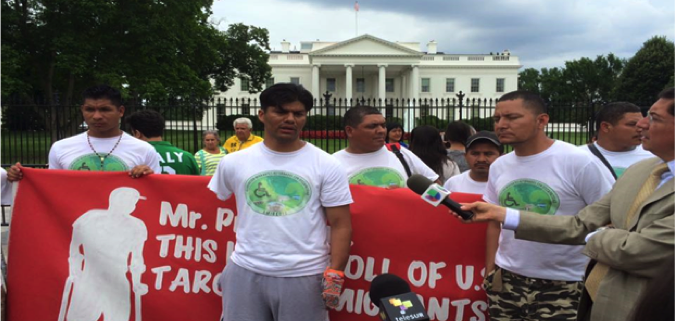
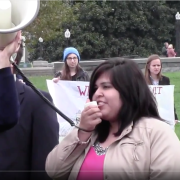
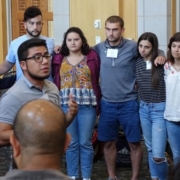
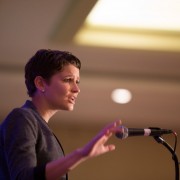
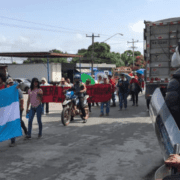
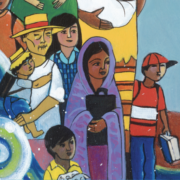



Leave a Reply
Want to join the discussion?Feel free to contribute!